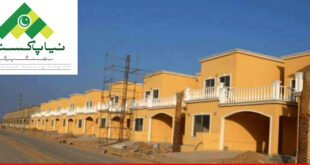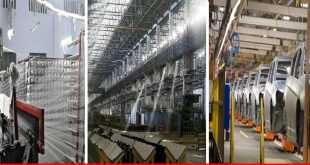Upto 30 to 35pc regulatory duty on steel products required to provide level-playing field to local industry
While the influx of Chinese steel in the country is hurting the local industry, the widening price difference is also causing surge in imports. Not only the private sector, but the Pakistan Steel Mills (PSM) is also facing a stiff challenge due to Chinese imports. The PSM is finding it very difficult to compete in the current situation because the cheap imported steel particularly from China is hurting its market just because of the price difference. The PSM is not producing billets, a thick steel bar that serves as a basic raw-material for different steel products because it has been facing problems in selling its products owing to its higher cost of production, sources revealed.
Industry sources told PAGE that since January, over 100,000 tons of steel billets and hot-rolled coils have been imported from China at prices that are dramatically decreasing month after month. This is due to the difference of over Rs6, 000 between locally produced billets and the imported ones. Current steel billet prices of PSM range between Rs67,0000-68,000 per ton including sales tax while the price of Chinese billets after duties and taxes at today’s prices are in the range of Rs60, 000-62,000.
Industry sources claim that the import of steel products including steel billets, steel bars and wire rods have registered over 118-percent growth in one year (2013-14) from 80,000 tons to 175,000 tons while consignments of around 100,000 tons are on the way to Pakistan posing a serious threat to the indigenous industry.
According to them, the import of steel products under the cover of non-alloy has become lucrative business from China. A quantity of 0.0008 percent of boron is mixed in steel to convert it into alloy steel that is cleared at five percent duty while it attaches zero percent duty under the Free Trade Agreement (FTA). Importers are taking full benefit of the situation.
Despite imposition of 15-percent regulatory import duty, the imported steel billets, bars and wire would be cheaper by 5,000 rupees per tonne in the local market creating an unhealthy competition for the indigenous industry. The government needs to increase regulatory duty on steel products up to 30 to 35 percent to provide level playing field to the local industry, local industry sources said.
Market analysts believe that while the Chinese economy slows down and domestic consumption drops, the world’s largest steel manufacturing nation has a massive oversupply problem. Over the last few months, cheap steel products from China have flooded the domestic markets due to subsidies on electricity and rebates on exports provided by the Chinese government to manufacturers, they said, adding: “Chinese manufacturers have resorted to dump their steel products in other countries by relying on government subsidies, tariff concessions through Free Trade Agreement (FTA) and marginal cost pricing mechanisms.”
Since cheap Chinese steel imports are poised to win a larger market share, the demand for PSM products is expected to decline – leaving its management once again with cash flow issues and having to go back to the begging bowl for further handouts from the government, market sources claim.
It may be noted that countries such as Egypt, Vietnam, Mexico, Brazil, US and India have countered this threat through imposing counter-veiling duties, regulatory duties and other non-tariff barriers to protect their local steel industry.
However, in case of Pakistan, due to concessions given through the Free Trade Agreement (FTA) and mis-declaration of non-alloy steel goods as alloy steel, the appropriate tariff barriers are not in place to protect PSM and the rest of Pakistan’s steel industry.
Pakistan Steel Melters Association (PSMA) has lauded the government for imposition of 15-percent duty on import of billets, steel bars and wire rods and termed it pro-industry gesture.
The local industry has now been saved from complete disaster where more than 30 percent of the furnaces had already been closed, a spokesman of PSMA said.
Dumping of low and under cost imports of steel billets and other items was being done. These imports were being made by just a handful of profiteers, who can be counted on finger tips and were making windfall profits, the spokesman said, adding: “Level playing field to the home industry would witness growth in investment, employment and revenue collection of the exchequer. It will have a huge multiplier affect on the economy and thereby the GDP. The melting industry is already paying heavy taxes to the federal government. The sales tax paid on Steel products by the local industry is over 20 billion rupees.”
According to spokesman, low priced and low quality Chinese Steel was being dumped into our local market as China has huge surplus of steel products.
The Steel Melters’ Association (SMA) has also expressed its satisfaction over the imposition of 15-percent regulatory duty on the import of various steel products in the country in order to protect the interest of local steel manufacturers. Given the present situation, need of the hour is to protect the local industry by taking all necessary safeguards.
 PAGE Blog Business Weekly Magazine
PAGE Blog Business Weekly Magazine

